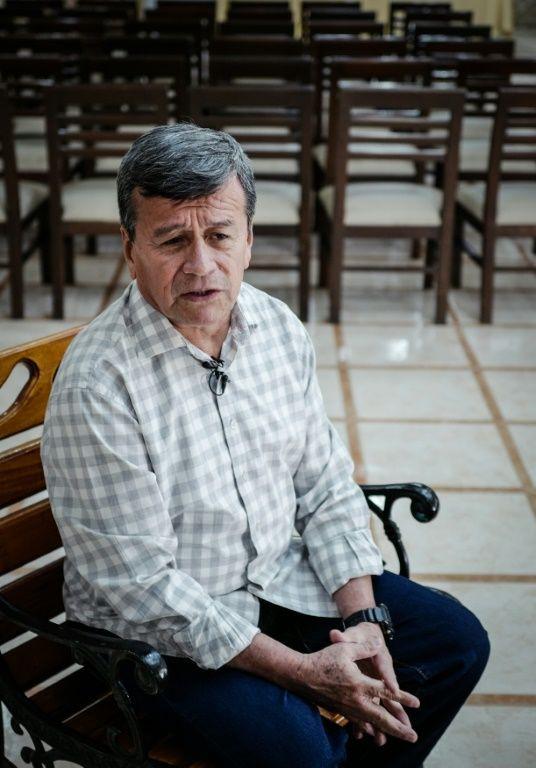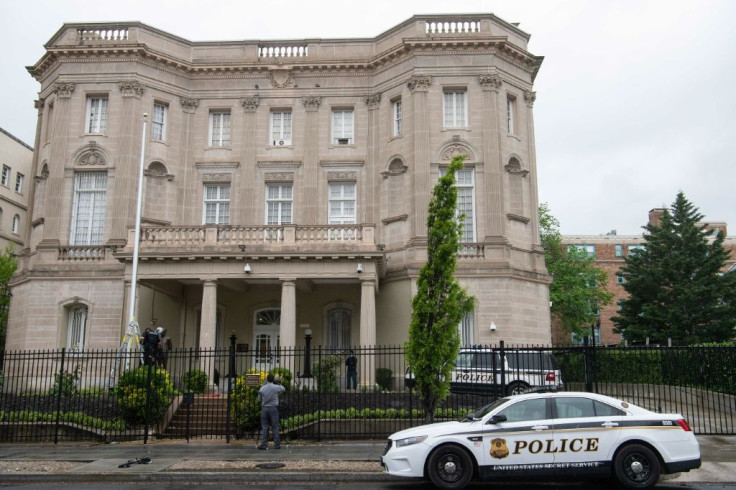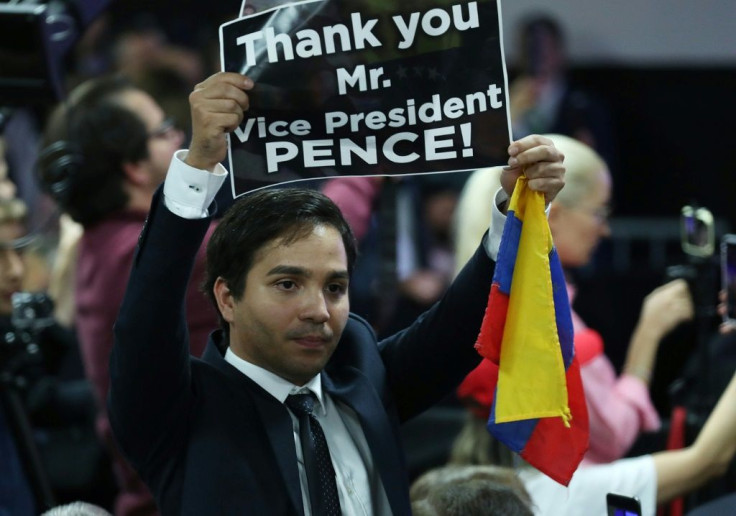US, Cuba Trade Terrorism Accusations As Havana Blacklisted
The United States and Cuba traded accusations of support for terrorism as President Donald Trump's administration on Wednesday blacklisted the communist island, saying it had not fully cooperated on counterterrorism.
Washington increased the pressure on Havana just one day after Cuba urged a terrorism probe over gunfire that hit its embassy in the US capital.
The State Department faulted Cuba over the presence of Colombia's leftist ELN rebels, who traveled to Havana in 2017 to negotiate with the Bogota government but have not returned.

It was the first time that Cuba was not certified since the 2015 report. It joined the ranks of four other US adversaries -- Iran, North Korea, Syria and Venezuela.
"Cuba's refusal to productively engage with the Colombian government demonstrates that it is not cooperating with US work to support Colombia's efforts to secure a just and lasting peace, security and opportunity for its people," the State Department said.
Colombian President Ivan Duque, a conservative ally of the United States, broke off talks with the ELN after a January car bomb attack on a Bogota police academy killed 21 recruits.
The militants have been demanding, unsuccessfully, that Colombia grant safe passage for its negotiators to come back from Cuba.

The State Department certification falls under the Arms Export Control Act and will have little practical effect on Cuba, which does not buy weapons from its long-time foe.
But the step is the latest by Trump to increase pressure on Cuba and move away from the reconciliation efforts undertaken by his predecessor Barack Obama.
The move is separate from a US designation of state sponsorship of terrorism, which has far-reaching legal effects.

The Obama administration removed Cuba from the list of state sponsors of terrorism in 2015, although Trump's State Department has flirted with putting it back on.
The ELN is said to operate in about 10 percent of Colombia but is a smaller player than the Revolutionary Armed Forces of Colombia, or FARC, which reached a landmark peace agreement with the government in 2016.
Miguel Ceballos, Colombia's high commissioner for peace, said the US move on Cuba gave weight to Bogota's demands "that all countries where ELN or FARC members are present hand them over to justice."

Cuban Foreign Minister Bruno Rodriguez accused the United States of hypocrisy for criticizing the island on terrorism but not preventing the attack on its embassy.
"It is hiding its history of state terrorism against Cuba and the impunity of violent groups on its territory," Rodriguez wrote on Twitter.
A day earlier, he demanded an "exhaustive investigation" into the April 30 shooting.
Police arrested Alexander Alazo, who is originally from Cuba, for firing 32 rounds in the early morning at the embassy, which suffered bullet damage. No one was injured.
Havana said Alazo frequented an evangelical church in Florida popular among conservative US politicians.
"I call upon the United States to explain these links" between Alazo and people or groups "who support the current US administration but are inciting hatred and violence against Cuba," Rodriguez said Tuesday.
In a court filing, the Secret Service said that Alazo had been prescribed psychiatric drugs after complaining of hearing voices and had been living in his car for nine months, saying he feared Cuban organized crime figures.
The 42-year-old unsuccessfully tried to set ablaze a Cuban flag and instead waved a US flag and "yelled towards the Cuban embassy that he was a Yankee," the Secret Service said.
Referring to the purported mental health issues, Rodriguez said, "If there was hatred in Alazo's actions, it was hatred induced by the aggressive language of the US administration."
The State Department earlier condemned the shooting and said the United States was committed to protecting diplomatic missions.
Rodriguez linked the shooter to a church in the Miami suburb of Doral, a hub of Venezuelans who have fled their country's crumbling economy.
Cuba is a key ally of Venezuela's leftist leader, Nicolas Maduro, whom the United States is trying to remove.
Vice President Mike Pence delivered a speech last year at the church, the Doral Jesus Worship Center, where he called Cuba's leaders "the real imperialists in the Western Hemisphere."
© Copyright AFP 2024. All rights reserved.





















